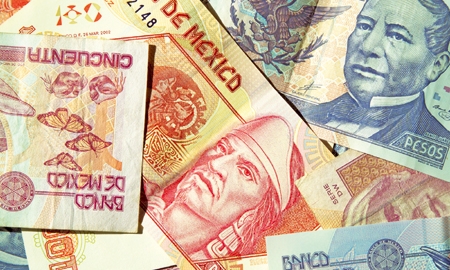And as long as much of the developed world still struggles to regain its economic and financial footing, emerging markets will continue to enjoy the investment limelight.
With President Peña Nieto’s various reforms – some under way and others pending approval – investor confidence, along with participation, is on the rise, as the general view is that these legislative changes will deliver higher growth capacity over time.
Foreign direct investment (FDI) for the first three months of 2013 was just short of US$5 billion, the highest since 2007 and a clear sign of greater investor confidence in the Mexican economy. With the telecommunications and energy sectors opening up to increased private foreign investment, the government is optimistic that this year will see a figure in the ballpark of US$30 billion.
As it stands now, the biggest beneficiary of FDI is the manufacturing sector, which received 65 per cent in the first quarter, with commerce, professional services, mining and construction bringing up the rear at 18, 4, 3 and 2 per cent respectively.
Some of the most noteworthy major direct investments of late include: a US$600 million project by Mondelez International Inc to build what will be the world’s largest biscuit factory in Nuevo León State; a US$691 million investment by General Motors to enlarge its manufacturing plants in Guanajuato, México and San Luis Potosí states; and a US$600 million investment by Apple Leisure Group in six tourist projects around the country.
Yet another major project, valued at US$125 million, will bring a LEGO Group toy factory to Nuevo León.
Investments such as these by foreign firms have enabled the central bank to accumulate foreign exchange, which rose to a historically high US$167 billion. Exports also grew in 2012, albeit at a slower rate than the previous year, reaching US$370.9 billion.
While billions are pouring in to Mexico’s industries, even more billions are being reciprocated. Mexican companies invested approximately US$25.6 billion around the world, thus making the country a net exporter of capital.
In terms of its markets, foreign investors injected US$46.6 billion (US$15 billion more than in 2011) into the money market, plus an additional US$10 billion into the stock market. As for government bonds, US$93 billion are in foreign hands.
Investments and reforms aside, the Mexican government over the past several years has made a conscious effort to expand its export markets, diversifying to countries beyond its northern neighbour.
“Currently our country has signed 12 free trade agreements with 44 countries, which gives us privileged access to a market of more than 1 billion potential customers and 70 per cent of global GDP,” says Dr Luis Videgaray, Secretary of Finance and Public Credit. “It has also signed 28 agreements for the promotion and reciprocal protection of investments with 29 countries.”
Additionally, Mexico is part of the Trans-Pacific Strategic Economic Partnership (TPP), which Dr Videgaray calls “the world’s most important and ambitious global trade negotiation” and also the Pacific Alliance. Comprised of just four member states – Chile, Colombia, Mexico and Peru – the Pacific Alliance area represents the ninth largest economy worldwide and the seventh biggest export power, according to the Finance Secretary.

0 COMMENTS